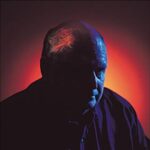 Researchers in the UK studied whether motivationalinterviewing (aka talk therapy) might benefit mood and mortality poststroke.
Researchers in the UK studied whether motivationalinterviewing (aka talk therapy) might benefit mood and mortality poststroke.
First, the details.
- 411 consecutive adult patients without severe cognitive or communication problems were randomly assigned to a treatment group.
- Usual stroke care alone
- 4 individual, weekly sessions of motivational interviewing in addition tousual stroke care
- After motivational interviewing, trained therapists encouraged patients to talk about their adjustment to stroke and to be more realistic about the future.
- None of the patients received psychiatric or clinical psychology treatment.
- The number patients with normal mood measured by the28-item General Health Questionnaire was recorded after 12 months.
And, the results.
- 38% patientsin the usual care group vs 48% patients in the talk therapygroup had normal mood.
- Significant benefit was associated with motivational interviewingvs usual stroke care for mood and mortality.
- There was no measurable effect of talk therapy on activities of daily living — surprising considering the reported improvement in mood following stroke.
The bottom line?
The authors concluded, “Results suggest that motivational interviewing improves patients’mood and reduces mortality 12 months poststroke.”
This is an extension of an earlier study using the same group of patients. In that study the focus was on the results after 3 months of talk therapy, which were almost the same — 40% patients in the usual caregroup vs 49% in patients in the talk therapy grouphad normal mood at 3 months.
7/4/11 21:36 JR